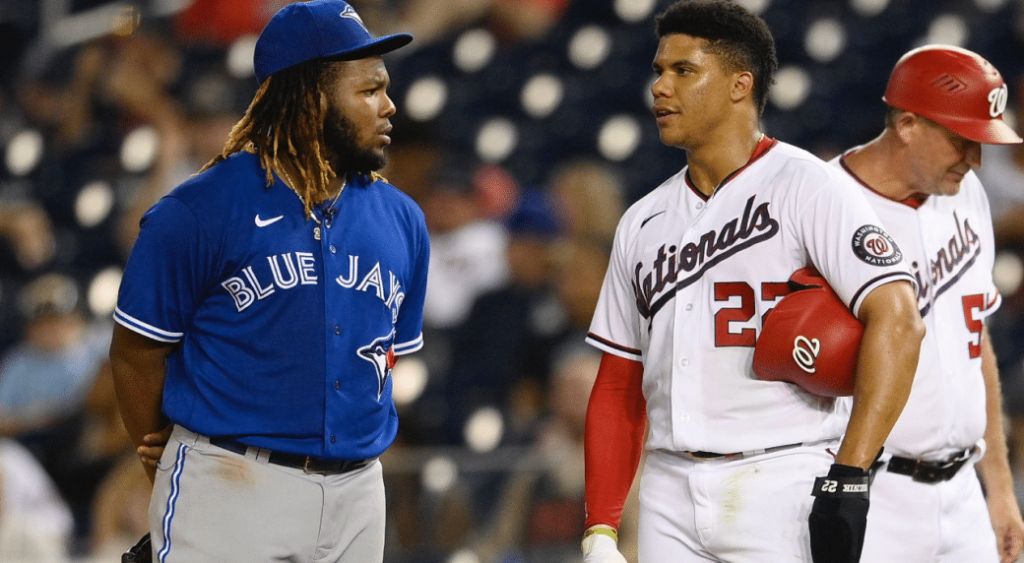With deadline looming, baseball risks missing bigger picture

When these negotiations started, they offered baseball’s owners and players a chance to think big.
For instance: Could all involved benefit from two new expansion teams? Beyond a pitch clock, what on-field changes could allow baseball to evolve at a time when the entertainment landscape is more competitive than ever? Might a shortened season of 144 games or so improve the overall product without excessively cutting into revenues?
In reality, talks have unfolded differently in Jupiter, Fla. this week and the focus has been on dividing revenues rather than growing them. A pitch clock may be coming, but expansion hasn’t been a priority in these talks, which have instead centered around core economics: competitive balance tax thresholds and penalties, arbitration, big-league minimums, revenue sharing, pre-arbitration bonus pools and service time manipulation.
Advertisement
Those areas are essential, no doubt about it. And if there were no agreement on those fronts, we’d soon be able to shift our attention from revenue sharing and anti-tanking measures to spring training, a trade market that’s expected to move quickly and the top remaining free agents – a group that still includes the likes of Carlos Correa, Freddie Freeman and Kris Bryant. You know, actual baseball. The kinds of stories that excite old fans and pull in new ones.
Unfortunately, it’s not happening that way, and on the final day before the league’s deadline to reach a deal with enough lead time to play a full season significant distance remains between the players and owners. Despite suggestions over the weekend that a real pathway to a deal existed, multiple sources close to the negotiations pushed back on that sentiment.
“Beyond absurd,” said one person connected to the players.
According to people familiar with the talks, MLB would have to move significantly off its current position for a deal to come together by Monday. So far, the league has moved slowly and incrementally, waiting six weeks after locking the players out to make an offer then finally moving on the competitive balance tax by just $1 million from $214 million to $215 million – an increase of just 0.47 per cent and far below the players’ target of $245 million.
Because the progress has been so slow, many players are angry. In fact, some believe the owners’ slow pace and apparent willingness to miss games actually brings the players together.
Advertisement
“Only strengthens their resolve,” one industry source said.
Regardless, with each passing hour, it becomes more likely that a labour dispute will cost the sport games for the first time since 1995. And as for the fans? Some existing fans may find the back and forth interesting, but it’s likely baseball will lose more fans than it gains from now until the moment a resolution is reached. Labour talks do not make for entertaining television. Juan Soto, Vladimir Guerrero Jr. and Shohei Ohtani do.
It’s still possible that an unforeseen shift will accelerate talks on time to preserve the season. Yet owners have shown little inclination to meet the MLBPA’s asks and sources close to the players say they’re equally resolute – especially after the last CBA nudged the sport’s economics firmly in the owners’ favour.
A week or two of missed games would hardly stop the sport in its tracks, especially if the result is a deal that works for everyone, but the lasting damage done by the 1994-95 strike shows the danger in being cavalier over work stoppages. The risk now is that the game as a whole will suffer.
Already, spring training games are being cancelled every week. Depending on how Monday goes, regular-season games could soon be lost, too. Owners say that would mean missed salaries for the players. Players say that would mean no expanded 2022 playoffs for the owners.
Advertisement
If that’s where these talks are headed, there would be lower revenues, less cultural significance and missed opportunities to create new fans. In other words, the game would be shrinking rather than growing. And if this fight costs baseball revenue and cultural impact, a win on arbitration or the competitive balance tax won’t matter as much in the end.